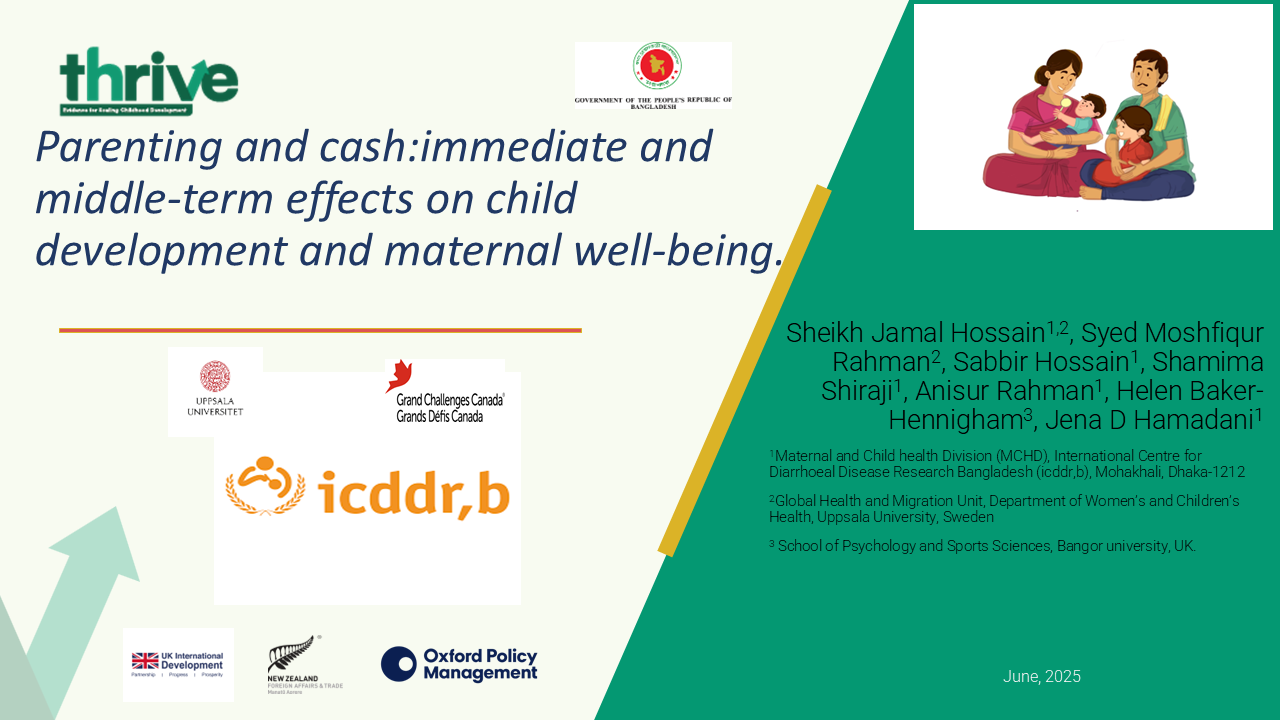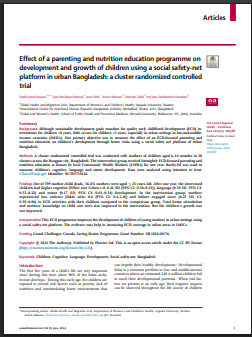Presenter: Mr. Sheikh Jamal Hossain, Scientist Maternal, New-born and Child Health, Maternal and Child Health Division
Evidence before this study
We reviewed the literature exploring if there was any intervention that used a social safety net platform in urban areas in deprived settings to see the effect of ECD-focused parenting and nutrition education on children’s developmental outcomes. We searched the PUBMED databases with the search terms “early childhood development”, “social safety net”, “cognitive function”, “language development”, “motor development”, “psychosocial stimulation” “parenting”, and “integrated child development interventions” to identify randomized controlled trials of ECD intervention programmes on 30 April, No language or time restrictions were applied to this search. We considered the main outcomes as children’s cognitive, language and motor development. The literature review yielded a few randomized controlled trials that successfully integrated parenting into health and nutrition platforms and conditional cash transfer programmes. We did not find any study that used an unconditional cash transfer programme as a social safety net programme in urban deprived areas in low- and middle-income countries.
Added value of this study
Evidence from the literature suggests that early childhood development intervention for children less than three years is of global importance. Early childhood stimulation programme coverage for poor people is also a big challenge for low- and middle-income countries. The delay in early childhood development can be prevented or recovered by early childhood stimulation interventions integrated into health, nutrition, or social safety-net (conditional/unconditional cash transfer) programmes, especially those that directly target disadvantaged children and their families. Our intervention was effective for the development of economically disadvantaged Bangladeshi urban children using social a safety net programme (unconditional cash transfer), especially where mothers were young.
Implications of all the available evidence
Our findings support the potential for an ECD focused parenting programme through home visits using a national social safety net programme (unconditional cash transfer programme) that can be used effectively to improve urban deprived children’s cognitive, language and motor development in low-income settings such as urban Bangladesh where the primary health care system is complex and patchy. Since the intervention reduced violence against mothers, improved their knowledge on childcare and fathers’ involvement, the effects may be long lasting.





